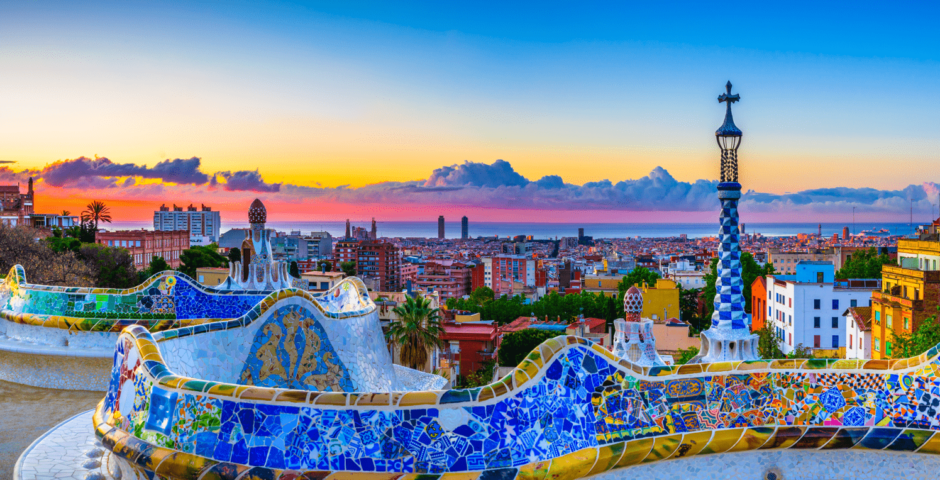Pan-European populism: One ideology with flexible interpretations (Part 1)

What populists in the Netherlands, Sweden and Italy have in common (part 1)
An economic and financial crisis shaking the bedrock of the European economy, a significant increase in net migration from outside the EU, ethnic tension fuelled by opportunistic politicians, Brexit and the election of Donald Trump have all left established democratic countries reeling. All these factors have coalesced into rising popularity of right-wing parties in Western Europe, drawing support with a message of ethnonationalist angst about the future of the, mostly exclusionary, perceived “local culture”. These factors have led to a surge of new literature heralding the end of neoliberalism and the European project, with titles such as “Europe on the Precipice: The Crisis of the Neoliberal Order” by Baier in 2016, and “The European trust crisis and the rise of populism” by Algan and colleagues in 2017 as exemplars of the dramatic narrative that has evolved. This discontentment, which is perceived to be driven by the white working class, has led to significant changes in the political landscape in all but a few European countries. The spread of the impact of this electoral shift is perhaps best illustrated at the European level, with the outcome of the 2019 European Parliament elections attesting to the electoral consolidation of the populist right-wing: together, these parties won 161 seats in 2019 compared with 118 seats in 2014, their best result ever.
From a liberal-democratic perspective, the rise of populists across the European Union is difficult to explain. After all, the populist message which many voters seem to support is one which denies the relevance and legitimacy of the very rules and conventions that have allowed them to flourish. They often also run counter to an inclusive dialogue on the future of the European Union, preferring a narrative of national sovereignty. It is these characteristics that present a risk to the liberal democratic values, and potentially the EU itself. There are numerous reasons to be found in articles discussing the rise of populism, ranging from arguments centred around economics, such as a backlash against globalisation, and problems with austerity to racism, ethnic and cultural conflict.* While the economic and cultural perspectives on the rise of populism can both explain part of the picture, it is this latter thread of thinking that can explain the diverse popular reactions that often seem to go against economic self-interest. Following the economic argument, one could expect the rise of populism to be highly dependent on the exposure to economic shocks resulting from previously mentioned events. This, however, proves not to be the case. Instead, the primary arguments seem to be based on ethnonationalist cultural concerns.
Defining Ethnonationalism and Populism
While populism, which claims to prefer the wishes of the masses from the aims of the elite, has been around in Europe since the 19th century, its most recent reincarnation has received a lot of attention. Left-wing populism such as characterised by the Greek Syriza party and the Spanish Podemos is discussed, yet most attention is given to far-right populism, in particular its connection with Islamophobia. At the same time, the cause of populism in Europe has been explained using various narratives, often using diverging definitions of populism.
Broadly speaking, I find that both left-and right-wing populists make two claims. Firstly, they argue that the actions of the government should reflect the will of the “pure and incorruptible citizens of an imagined silent majority. As Mudde in 2004 points out, all populist rhetoric makes a distinction between ‘we’, the pure population, and ‘them’, the corrupt elite. Secondly, populists seek to claim legitimacy by painting the political establishment as corrupt and disinterested in the real needs of the people, seeking just to maintain power for themselves. However, right-wing populists take it a step further; they often communicate a message of illiberal democracy that is built around the construction of two outsiders. These outsiders are Muslim immigrants, representing a threat to the homogeneous national identity, and the EU’s liberal/left elite, whose supranational character represents a threat to national sovereignty.
It is this construction of outsiders that is particularly interesting, as it is Muslims in particular who have become the worrisome “others” in the eyes of the far-right. To understand why so many far-right parties across the EU use similar rhetoric, it is useful to understand the concept of ethnonationalism. The concept of ethnonationalism was first proposed by Smith in 2009 and explains that the experience of nationhood cannot be understood without consideration of ethnic compositions, proposing an ideational theory of nationhood, where members of the national ethnic group share several important characteristics, including a national origin myth and an association with a specific homeland, both geographical and cultural.†
Geographical components of ethnonationalism necessarily differ between countries, yet this is not the case with culture. While arguments based purely and openly on cultural incompatibility are often identified with racism, it is often the cultural component of the national identity that ethno-nationalists connect their talking points to. This way they can communicate a message that resonates with the part of the population that is worried about outsiders, while pushing cultural fears as the main driver of their concern.
In the next article, we will look at the rise of populism in the Netherlands, Italy and Sweden, all three countries with a significant number of right-wing populists in their parliaments despite considerable cultural and economic differences. We will then see that, in general, it can be said that right-wing populist movements in the Netherlands, Italy and Sweden are all based on and fuelled by ethno-nationalist arguments, in particular arguments related to an imagined original interpretation of national identity. In all three cases, the arguments are constructed around opposition to two outsiders: the corrupt elite and Muslim immigrants.
Marnix Vermeer obtained a Master in Economics: Global challenges and macroeconomic policy from Maastricht University, and is currently pursuing a Master in International Relations in Barcelona.
* For more on globalisation, see Peters, 2018; Milner, 2019; Goldstein & Gulotty, 2019. For austerity, see Dovis, Golosov, and Shourideh, 2016; Cossarini & Vallespin, 2019. For racism, ethnic and cultural conflict, see Cornell, 2018; Vieten, 2016; Inglehart & Norris, 2016; Noury & Roland, 2020
† Anthony D. Smith is emeritus Professor of Nationalism and Ethnicity at the London School of Economics.
Featured image: Shutterstock




